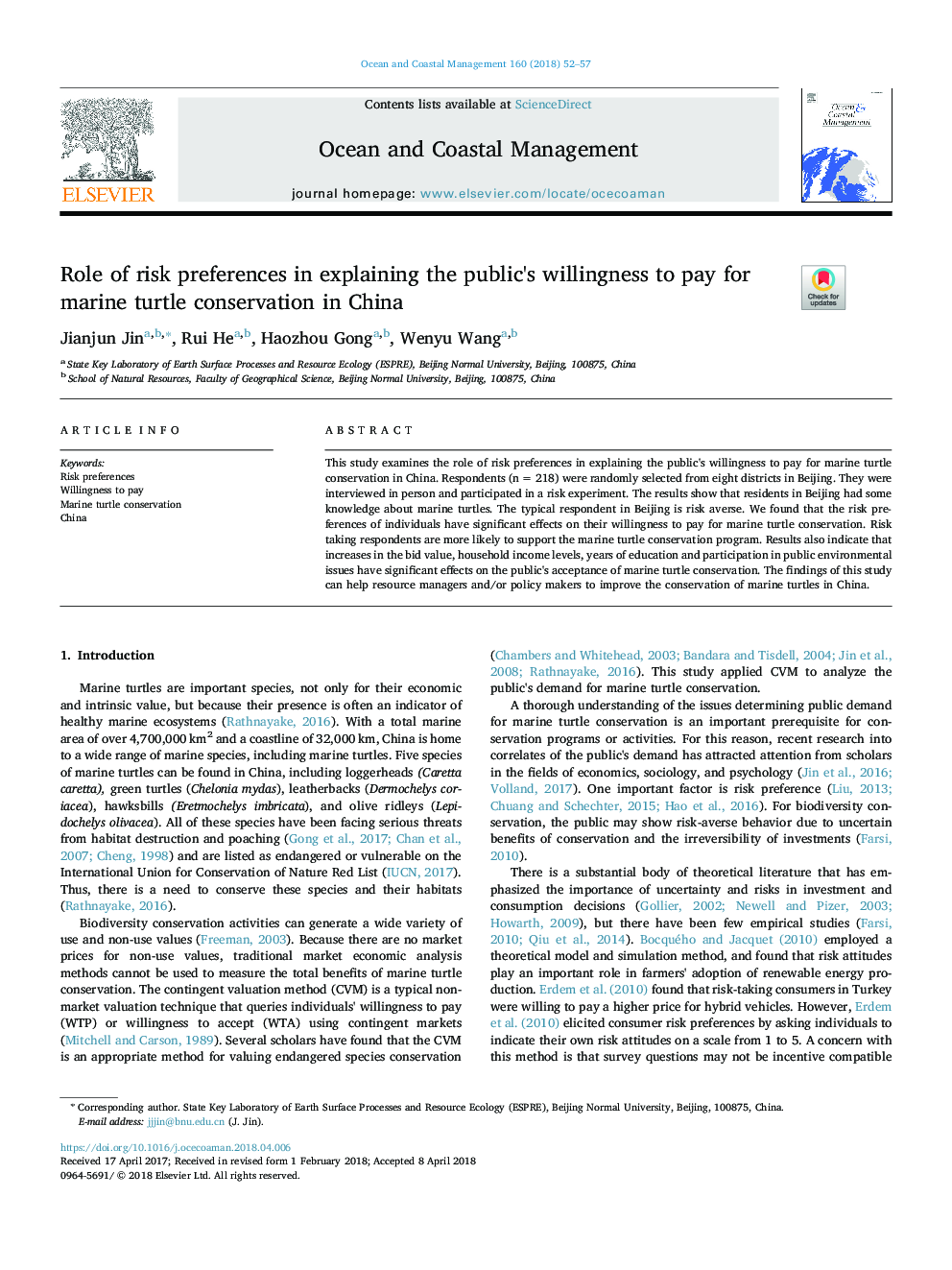| Article ID | Journal | Published Year | Pages | File Type |
|---|---|---|---|---|
| 8060641 | Ocean & Coastal Management | 2018 | 6 Pages |
Abstract
This study examines the role of risk preferences in explaining the public's willingness to pay for marine turtle conservation in China. Respondents (nâ¯=â¯218) were randomly selected from eight districts in Beijing. They were interviewed in person and participated in a risk experiment. The results show that residents in Beijing had some knowledge about marine turtles. The typical respondent in Beijing is risk averse. We found that the risk preferences of individuals have significant effects on their willingness to pay for marine turtle conservation. Risk taking respondents are more likely to support the marine turtle conservation program. Results also indicate that increases in the bid value, household income levels, years of education and participation in public environmental issues have significant effects on the public's acceptance of marine turtle conservation. The findings of this study can help resource managers and/or policy makers to improve the conservation of marine turtles in China.
Related Topics
Physical Sciences and Engineering
Earth and Planetary Sciences
Oceanography
Authors
Jianjun Jin, Rui He, Haozhou Gong, Wenyu Wang,
